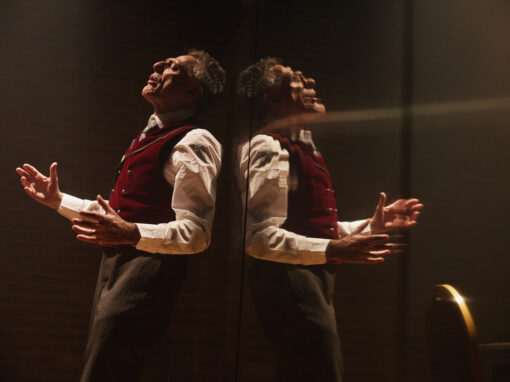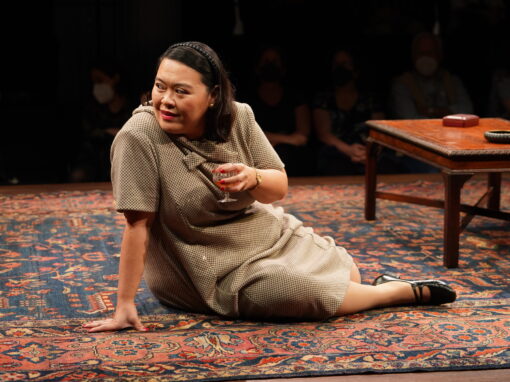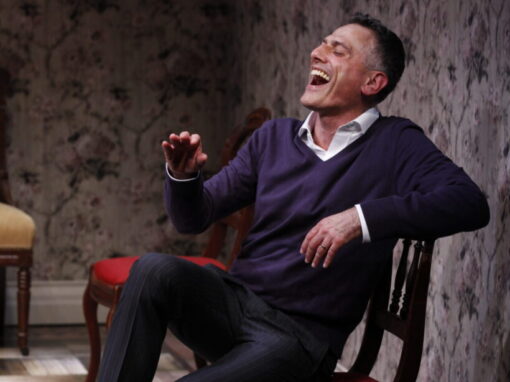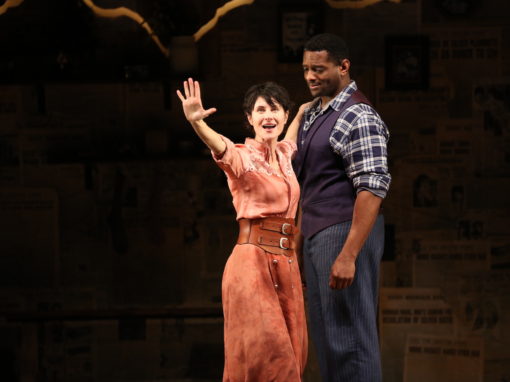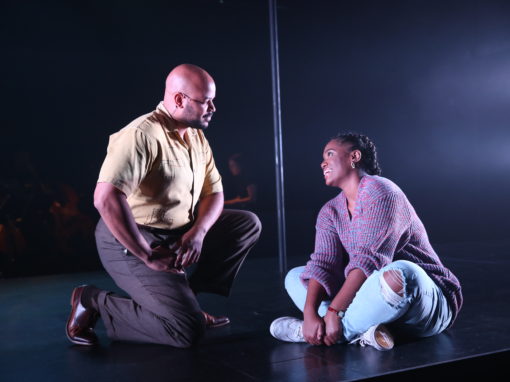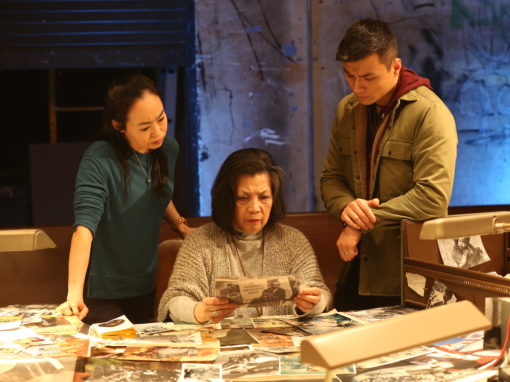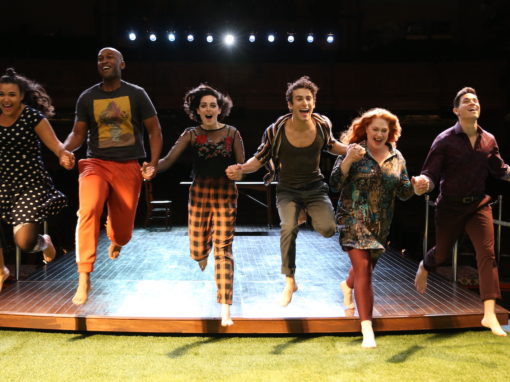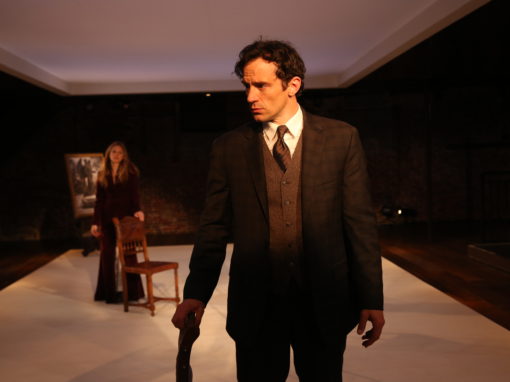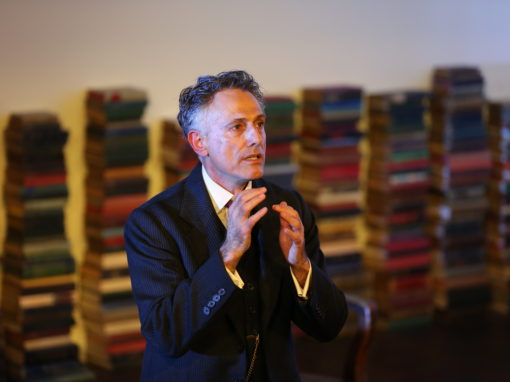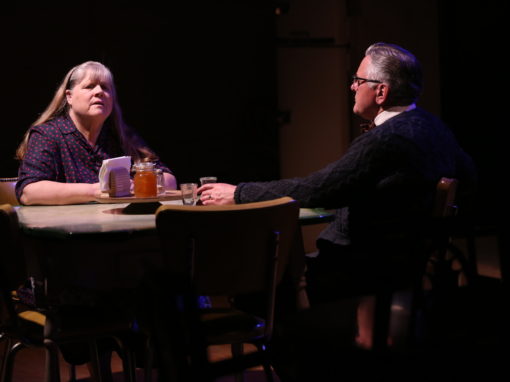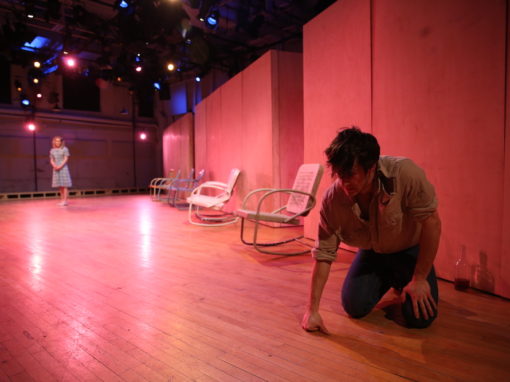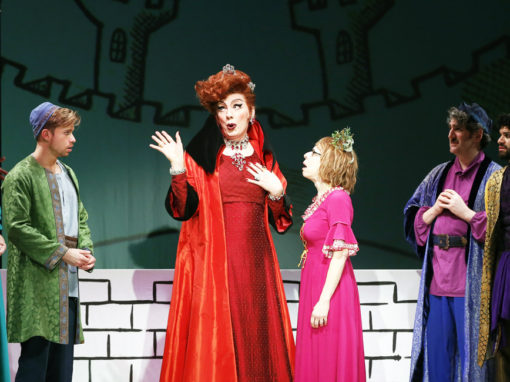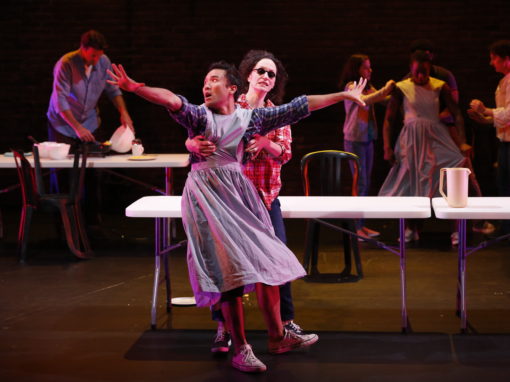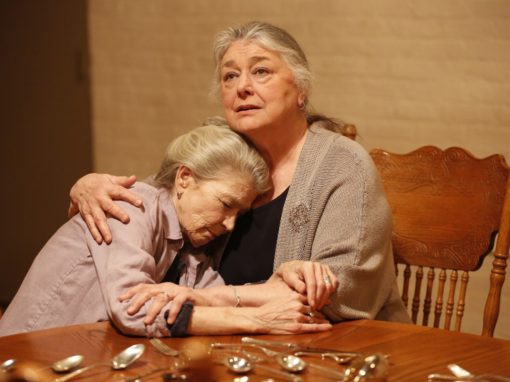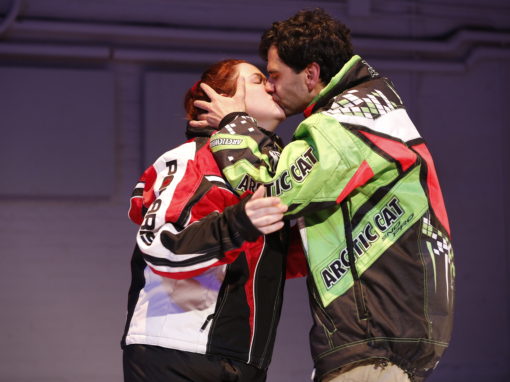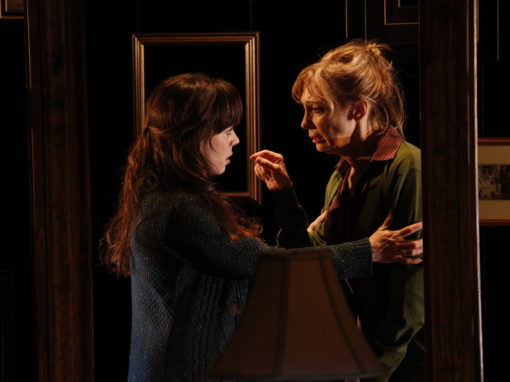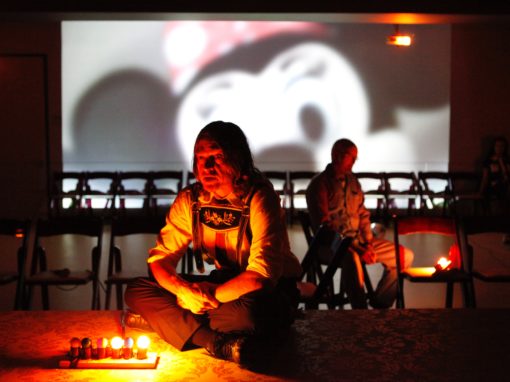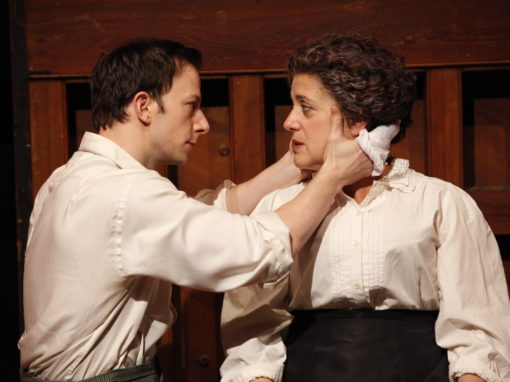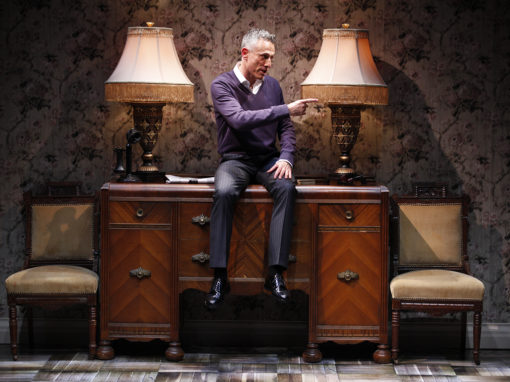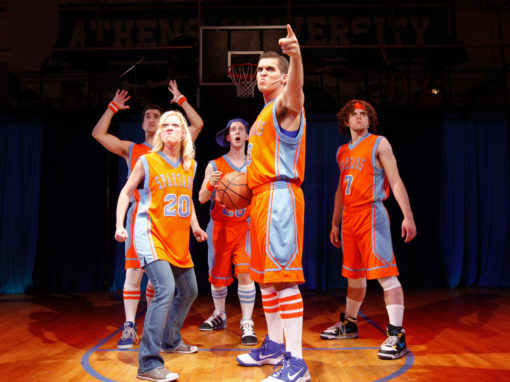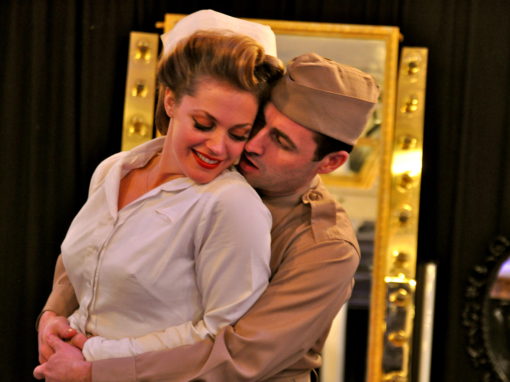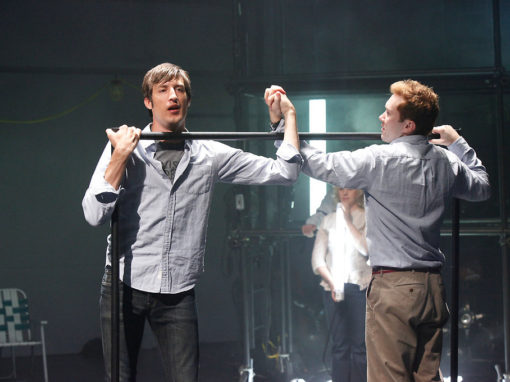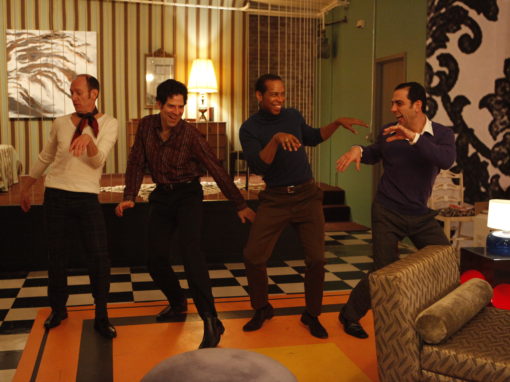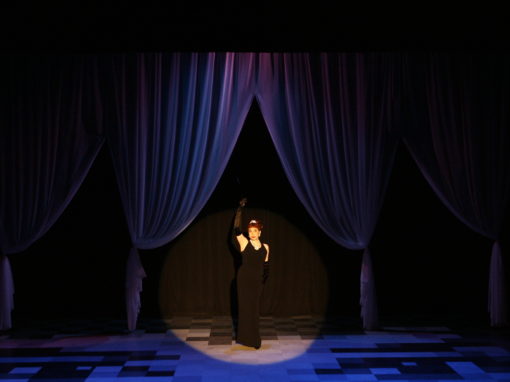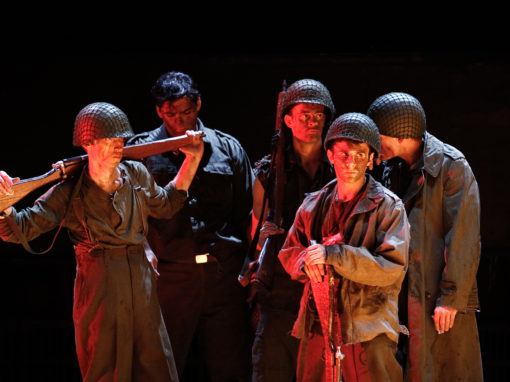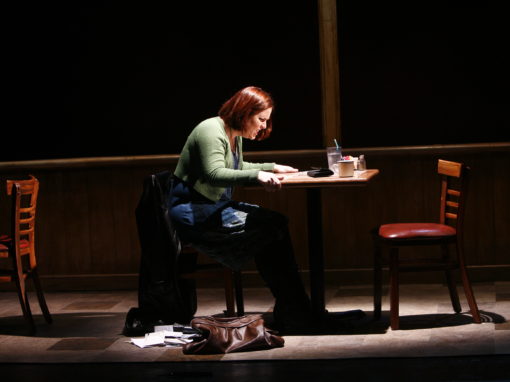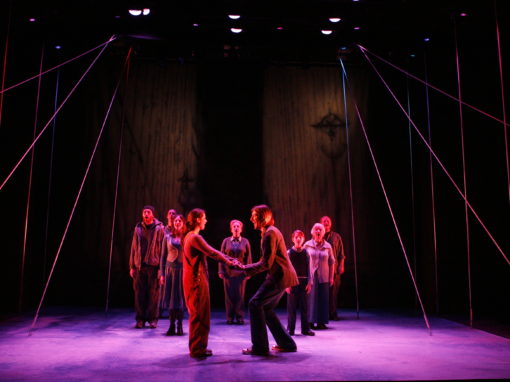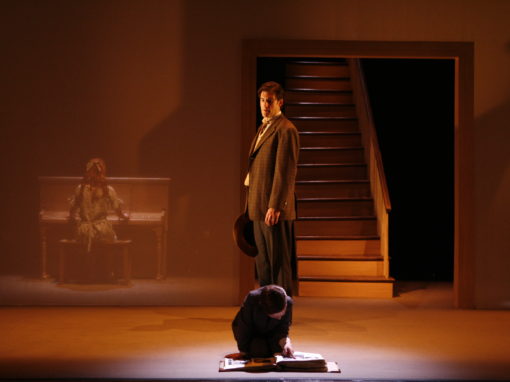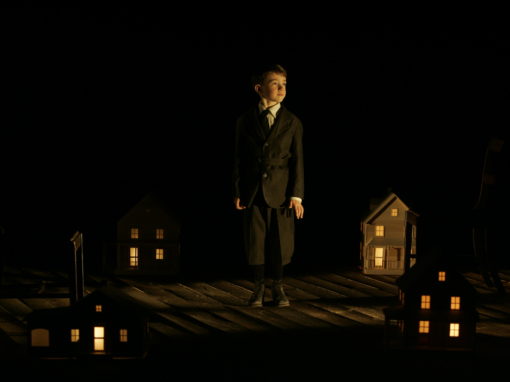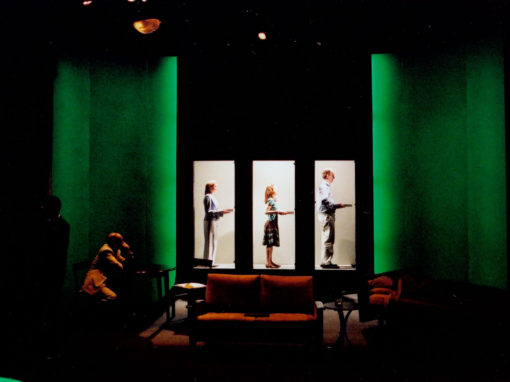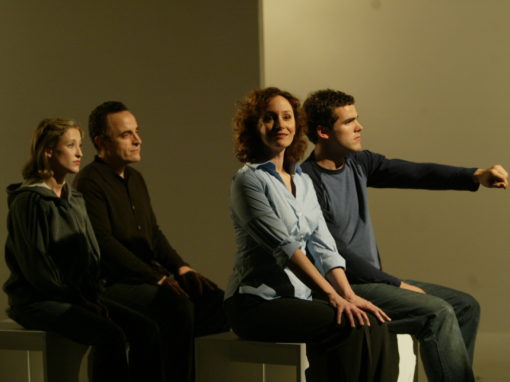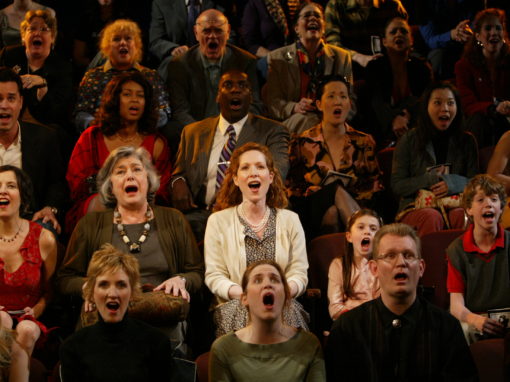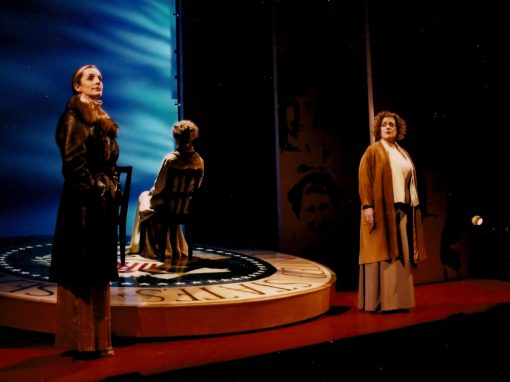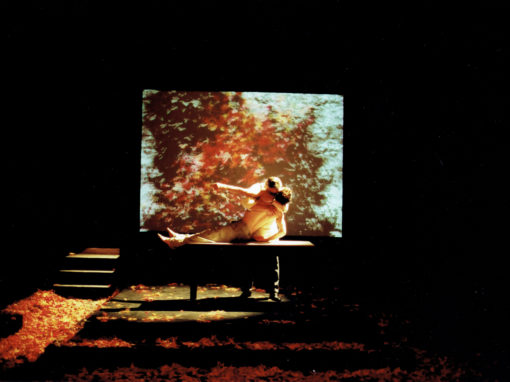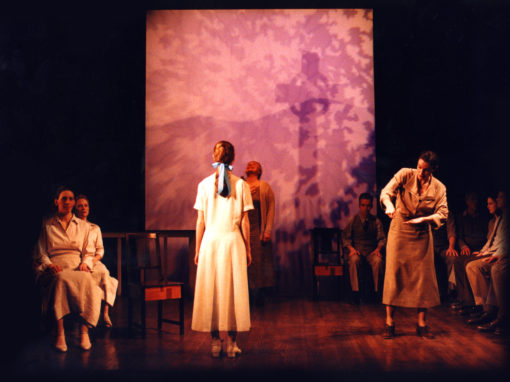WHAT’S THIS I SEE? // BY JACK CUMMINGS III
In the final WHILE WE’RE HOME, our own Jack Cummings Ill asks a question that doesn’t have an answer, but searches for one anyway.
It’s Friday, April 8, 2022. This will be our last While We’re Home essay. In just two days, on Sunday, April 10 to be exact, Transport Group officially returns after two years with the opening of The Patsy, starring David Greenspan. With this opening, Transport Group will no longer be “at home” and so our essay series comes to an end. Our first essay by John Cariani appeared on April 10, 2020, and today’s final installment marks our 96thessay. I have an odd, superstitious relationship with numbers and since 1996 is the year my wife and I were married, I’ll consider 96 to be a good number to bring this series to its conclusion.
Reflecting back on these last two years has been daunting—I have resisted it, to be frank. I mean, who wants to voluntarily relive any of it? As I write, I find myself starting to type the word “journey” and immediately my inner Miranda Priestly says, “Journey? Groundbreaking.” I back away from the computer, now terrified of every possible cliché—which are suddenly EVERYWHERE! But one has to do what one has to do. And with that cliché (dammit!), I will attempt to write this final essay.
As my close friends know, I have had a song stuck in my head ever since the beginning of the pandemic. It sorta makes me laugh as well as haunts me. It’s Burt Bacharach and Hal David’s “Alfie.” The recurring phrase “What’s it all about, Alfie?” will not leave my head. It’s a question that irritates me as I don’t relish any deep introspection—I mean, that’s hard work! But the song persists—following me wherever I go any time of the damn day. Anyone in my role—a director and artistic director in the New York Off-Broadway non-profit sector—will tell you it is a relentless situation, to put it mildly. The constant anxiety about finances and fundraising alone are enough to put anyone over the edge daily. Then there is the endless battle of trying to exist in a landscape where most of the available oxygen is taken up by the commercial (Broadway) sector. All of this coupled with trying to create complex and challenging art—the reason we’re all here in the first place.
When the shutdown began, I felt I had been violently thrown off an insane roller coaster that I was so accustomed to, I didn’t even realize I was on it. Disoriented, confused, exhausted, freaked out—you name it, I felt it. We all did, right? As the months wore on and my staff, board, and I focused intensely on keeping the company alive (its own version of an insane roller coaster), I kept asking myself, “Why am I doing any of this? Why are any of us doing this? Why does theatre even exist? WHAT’S THE POINT?” Here we were/are surrounded by death, the murder of George Floyd and countless others, an election year where the possible outcome was at times too much to bear, and the January 6 attack on our democracy (not to mention the current war in Ukraine)—BIG questions about why one is doing what one is doing naturally arise! Of course, I tried to avoid these questions—rewatching Downton Abbey for the umpteenth time sometimes did the trick. But like anything tough in life, it eventually finds you. And there you are.
If anyone reading this thinks here is where I have some huge revelations that can be neatly stitched in needlepoint, answering these “What’s it all about, Alfie?” questions, sorry to say I have none. And that really pisses me off. All I have to offer are a few things I’ve noticed over the least two years and some possible theories as to why it may not all be for naught. I’ll try at least.
The initial reason for starting this essay series was to find a simple weekly reason to stay in touch with our audiences as well as our artistic community. I am not a film/Zoom type of person so the “written word” as they say seemed the best fit. The guidelines were fairly straightforward: write about something personal you experienced while working on a Transport Group show. We decided to release them every Friday morning (save for the few holiday weekends) and that if you chose to read them, it would only take up a few minutes of your day. I never told any of the writers what to write—only to write in whatever voice was theirs. As long as it was their own authentic voice, that’s all that mattered. Looking back, I realize this essay series is what spiritually kept me alive. During the week, the “Alfie” questions would nag at me, depress me, confuse me—and then every Wednesday I’d receive in my inbox an essay from that week’s writer. It was always a special moment, clicking on the attachment—it felt like opening a present. As I would read each one, a warm feeling would overtake me. I felt connected. I felt I was getting to know someone in a whole new way. It was as if I was at their kitchen table, and we were having a meaningful catch-up over coffee. The world seemed a bit better, the Alfie questions “taking a ten” from my brain, and I finally felt a bit hopeful—if only for a short while.
But then the inevitable would happen. These weekly Wednesday moments would then evaporate and like clockwork, the “Alfie” questions would return with a vengeance. When one has pursued one thing their entire life without question (I have been directing for over 30 years), it is unnerving, to say the least, to suddenly question it/doubt it daily. I think the pandemic put many of us in this unsettling state. And it’s not the most fun thing to talk about either—How To Bring A Room Down 101. And so, like most neurotic people, I resorted to overthinking—I mean, is there ever really a choice not to overthink?
Like most kids growing up in the ‘60s and ‘70s, The Wizard of Oz is a film emblazoned on our brains. The yearly event this was in our collective households back in those seemingly innocent days cannot be underestimated. For the younger generation, this was before VCRs and DVDs, etc. If you missed it, you would have to wait a full year before you got the chance to watch it again. And because so much time would pass between showings, it always felt like you were watching it for the first time—every year! I recently revisited it the other day. As I get older, I find myself looking at things from my childhood thinking they contain some secret answer to the scary existential questions we face as we age (pleasant I know).
One scene in particular caught my eye. The scene is early in the film and it’s between Dorothy and Professor Marvel—after Dorothy has run away from home. This scene has always been my favorite, actually. The performances here from Frank Morgan and Judy Garland are stellar. But what has always touched me is how tender and innocent the scene is (I’m Irish so I’m a sucker for that kind of stuff). But on this recent day, I started to become aware of something else happening in the scene. Keenly aware of this little girl’s situation, Professor Marvel sets out to somehow get her back home. Without her knowing it, he invokes a world of pretend. He puts on a costume (a lone turban) and plays the role of a clairvoyant looking into a crystal ball to tell her things she can’t see or know. He pretends to know things about her life and even goes so far as to concoct a story that her Aunt Em has fallen down with grief over her running away. Professor Marvel plays the part beautifully with full conviction and honesty. Dorothy is so moved by this performance that she heads right home—realizing her Aunt Em is more important than running away from her troubles. This all sounds rather simple, doesn’t it? But as I watched it, I was taken with the fact that through pretending and telling a story, this man enabled a distressed person to think more deeply about her life and loved ones. His “putting on a show” allowed her to go back home. I found myself moved by this scene in a way that was new. Maybe a reason to do this thing I’ve been doing over and over for decades is to do what Professor Marvel did: give someone a chance to be in touch with something inside themselves they didn’t know how to reach. Maybe? I don’t know. Remember, I only promised theories, not answers. I don’t know if real answers are even possible at this point. What does feel real to me, though, is when I look at this scene from an 83-year-old film, I want to keep trying.
Last week, I had dinner with some close friends, and we were talking about my broken record “Alfie” questions (naturally). I finally asked, “But is it worth it? Is making theatre actually worth it?” One of them paused, thought carefully, and said, “I actually don’t know whether or not it’s all worth it. But here is what I do know: Theatre is one of the very last places where everyone has to be in the same room, breathing the same air. And when that happens, everything is at least possible.”
I like this theory.
And so, I’d like to take a moment and raise a glass to all the artists I have had the honor to work with these past twenty years who like Professor Marvel, have lovingly guided me home, again and again and again.
Let’s keep going.
About the author:
Jack is the Co-Founder and Artistic Director of Transport Group Theatre Company. Select Transport Group credits: Broadbend, Arkansas, The Trial of the Catonsville Nine, Summer and Smoke (co-production with Classic Stage Company), Renascence (co-directed with Dick Scanlan), Queen of the Mist, The Audience, Three Days To See, Marcy in the Galaxy, See Rock City & Other Destinations, Strange Interlude, I Remember Mama, Normal, Once Upon A Mattress, Picnic, The Boys in the Band, Almost, Maine, Our Town. Other NY credits: world premieres Terrence McNally’s And Away We Go (Pearl Theatre Company), 1,000 Words Come to Mind (Premieres Inner Voices), Arlington (Premieres Inner Voices). Regional: Benny & Joon (Old Globe Theatre, Paper Mill Playhouse), I Remember Mama (Two River Theatre), A Streetcar Named Desire (Gretna Theatre). BA College of William & Mary, MFA University of Virginia. Married to Barbara Walsh.
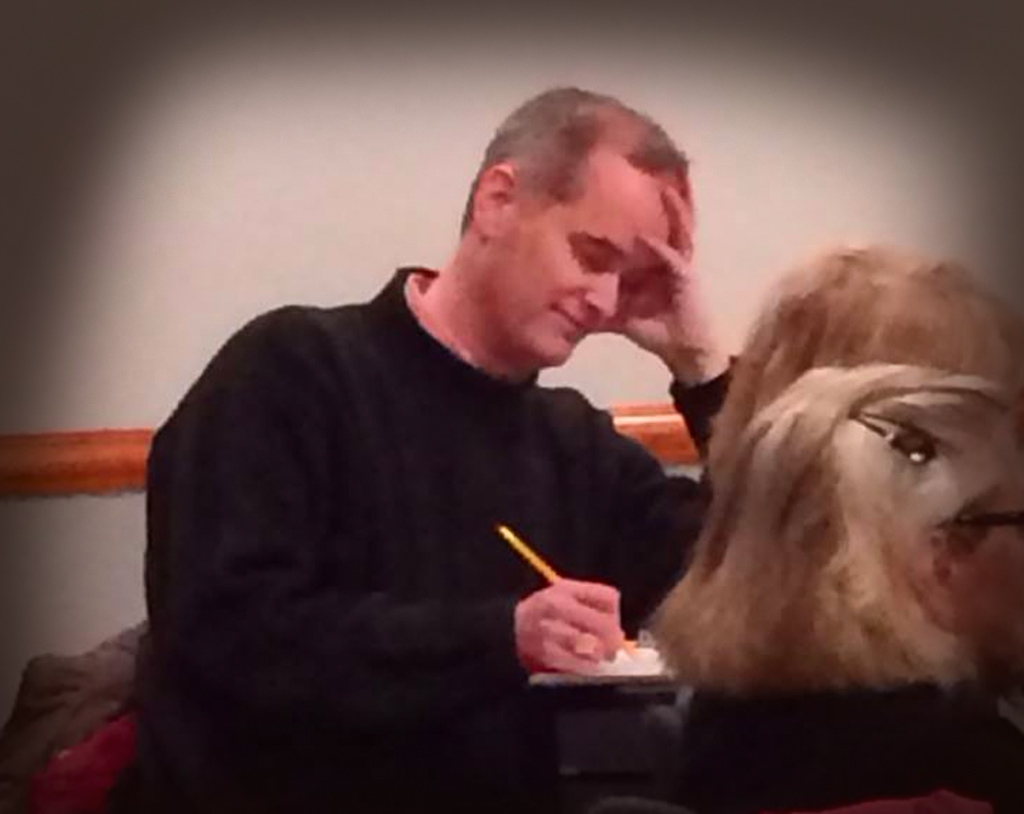
Explore Our Past Shows
